When hospitals and health systems employ their own emergency and hospital medicine clinicians, they can benefit from clinician loyalty, a high degree of patient trust in clinicians, and an alignment between clinical practices and hospital goals. However, they may face challenges with delivering exceptional patient care while simultaneously managing an array of back-office administrative functions and compliance responsibilities, including clinician recruitment and retention, clinical leadership development and accountability, performance data, and documentation and revenue cycle efficiencies, to name a few.
In these situations, clinicians often find themselves spending a significant amount of the time they could be with patients on administrative functions. While paperwork is part of the business of health care, its encroachment on the time clinicians could be seeing patients should be mitigated.
In its position paper, “Patients Before Paperwork,” the American College of Physicians stated, “Administrative tasks that cannot be eliminated from the health care system must be regularly reviewed, revised, aligned, and/or streamlined in a transparent manner, with the goal of minimizing burden, by all stakeholders involved.”
Rather than shoulder the administrative burden entirely, hospitals and health systems can reduce that burden for their clinicians and other employees by partnering with an organization that specializes in optimizing the necessary operational functions. These types of strategic partnerships have numerous benefits, including:
Clinician and Patient Satisfaction
Curtailing administrative burdens at all levels enables hospital administrators to give hospital-employed clinicians what they want: the clinical autonomy to practice in an efficient, high quality, and patient-centric way. Hospitals and health systems are better able to foster a positive work environment that results in greater satisfaction and happy clinicians equate to lower turnover, better outcomes, and happy patients. The result is a clinical milieu that promotes clinician and patient loyalty.
Increased Financial Stability
Among the many benefits an optimization partnership can offer hospitals, cost-efficiency and financial sustainability are often the most attractive. For example, by aggregating volumes, employed optimization organizations can achieve economies of scale through a greater operational infrastructure. They can also expand growth opportunities by employing more efficient reimbursement processes, accurate coding and collection practices, improved documentation and billing, and maximized operational throughput.
Documentation and Revenue
Accurate documentation equates to precise billing with higher compliance and it’s another reason to work with an experienced outsourced partner that can make improvements quickly, with minimal disruption. Removing documentation barriers means having charts that accurately document patient care, so hospitals get paid for work being done without costly adjustments and back and forth communications.
Tracking Operational & Financial Performance
The current reimbursement environment is forcing hospital administrators to evaluate provider productivity and program performance more closely. However, tracking operational and financial performance requires a great deal of work, time, and data—too much for one person.
You can divide and conquer by putting an advisory team in place. Outsourcing allows the spread of operational and performance tracking responsibilities among a group of people who can streamline collaboration and provide continuous oversight.
You retain control and the group stays abreast of the ever-changing reimbursement rules, guides the emergency and hospital medicine clinicians to deliver high-quality care, reach hospital goals, and is fully accountable for the results.
Coordination & Integration
Coordination, integration, and reduced variation are integral factors in delivering consistent, safe, high-quality care. The right outsourced partner, one committed to collaboration and transparency, can help drive standardization to see better results across departments and even locations.
Enhanced Flexibility
Outsourced practice optimization partners put more resources at your disposal. A team of experts is more able to adjust and flex as needs fluctuate. It is a model with high scalability that can meet changes in demand.
Success in Value-based Care
As value-based care requirements continue to evolve, hospitals are under pressure to find sustainable ways to support these models. An optimization partner can help identify where to adjust reimbursement models and improve efficiency and precision in care delivery.
Expert Advantages
Outsourced partners have expertise in specific departments and product lines that hospitals can take advantage of. They can apply the knowledge gained from multiple facilities across a range of specialties and sizes to your setting. Such arrangements allow hospital management to concentrate more on the big picture of running the institution while assigning duties to outside firms with a much more specific focus.
Strategic Outsourcing Partnerships
Outsourcing some or all of the back office functions for employed clinicians is a common-sense approach that hospitals can use to retain control while offloading administrative burdens. The partners can take on tasks such as coding and billing support, medical staff integration and collaboration, improving access to clinical leadership and development, and providing detailed reporting and analytics capabilities.
This service frees hospital leadership and clinicians to focus on improving organizational culture and clinical excellence, creating a more engaging environment for staff and a more welcoming space for patients.
SCP Health offers multiple options and solutions for hospitals and health systems with employed clinicians. Contact our team today to find out how our clinical and operational experts could help support your organization’s improvement.






